Jonah Engel Bromwich in the New York Times:
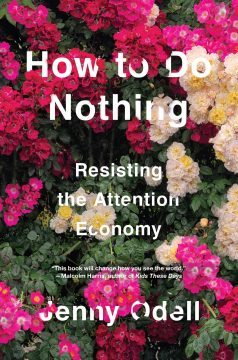 In 2015, Jenny Odell started an organization she called The Bureau of Suspended Objects. Odell was then an artist-in-residence at a waste operating station in San Francisco. As the sole employee of her bureau, she photographed things that had been thrown out and learned about their histories. (A bird-watcher, Odell is friendly with a pair of crows that sit outside her apartment window; given her talent for scavenging, you wonder whether they’ve shared tips.)
In 2015, Jenny Odell started an organization she called The Bureau of Suspended Objects. Odell was then an artist-in-residence at a waste operating station in San Francisco. As the sole employee of her bureau, she photographed things that had been thrown out and learned about their histories. (A bird-watcher, Odell is friendly with a pair of crows that sit outside her apartment window; given her talent for scavenging, you wonder whether they’ve shared tips.)
Odell’s first book, “How to Do Nothing: Resisting the Attention Economy,” echoes the approach she took with her bureau, creating a collage (or maybe it’s a compost heap) of ideas about detaching from life online, built out of scraps collected from artists, writers, critics and philosophers. In the book’s first chapter, she remarks that she finds things that already exist “infinitely more interesting than anything I could possibly make.” Then, summoning the ideas of others, she goes on to construct a complex, smart and ambitious book that at first reads like a self-help manual, then blossoms into a wide-ranging political manifesto.
More here.

 Over the last decade, journalists have held up Germany’s renewables energy transition, the Energiewende, as an environmental model for the world.
Over the last decade, journalists have held up Germany’s renewables energy transition, the Energiewende, as an environmental model for the world.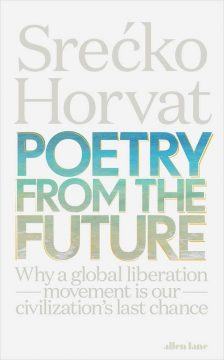 Is anyone free to decide her own destiny? Or is the course of her life determined by prior events? Since so many of our decisions operate under constraints of various kinds — the imperative to do something or be somewhere at a fixed time — is free will an illusion? The question takes on added significance given the overwhelming economic imperative to survive in a vicious world. So much of what we desire nowadays is not so much “unthinkable” — we can always dream — as practically impossible. What hope is there of recovering possibility from a world in which the future has become as predictable as the next rent day?
Is anyone free to decide her own destiny? Or is the course of her life determined by prior events? Since so many of our decisions operate under constraints of various kinds — the imperative to do something or be somewhere at a fixed time — is free will an illusion? The question takes on added significance given the overwhelming economic imperative to survive in a vicious world. So much of what we desire nowadays is not so much “unthinkable” — we can always dream — as practically impossible. What hope is there of recovering possibility from a world in which the future has become as predictable as the next rent day?
 Burnout — work-related stress resulting in emotional and physical exhaustion — remains an expected rite of passage for many professions. However, the medical community has begun to place more emphasis on reducing burnout — and science academia would do well to learn from it. Despite the differences between medical and scientific training, stress is a common denominator for students in both fields. For example,
Burnout — work-related stress resulting in emotional and physical exhaustion — remains an expected rite of passage for many professions. However, the medical community has begun to place more emphasis on reducing burnout — and science academia would do well to learn from it. Despite the differences between medical and scientific training, stress is a common denominator for students in both fields. For example,  Maybe podcasting would be more interesting if it were an instrument of fascism, or terrorism. ISIS knows better: they don’t make podcasts, they make YouTube videos. Talk radio can still control the listener’s emotional response, but no one feels threatened by the infinitely banal podcast. Instead of emotion or camaraderie, what podcasts produce is chumminess
Maybe podcasting would be more interesting if it were an instrument of fascism, or terrorism. ISIS knows better: they don’t make podcasts, they make YouTube videos. Talk radio can still control the listener’s emotional response, but no one feels threatened by the infinitely banal podcast. Instead of emotion or camaraderie, what podcasts produce is chumminess He studied theology and philosophy, completing his doctoral studies on happiness in the ethics of Aristotle. He became a teaching professor at St Michael’s College in Toronto.
He studied theology and philosophy, completing his doctoral studies on happiness in the ethics of Aristotle. He became a teaching professor at St Michael’s College in Toronto. The governing elites of ancient and medieval Europe were not greatly hospitable to humor. From the earliest times, laughter seems to have been a class affair, with a firm distinction enforced between civilized amusement and vulgar cackling. Aristotle insists on the difference between the humor of well-bred and low-bred types in the
The governing elites of ancient and medieval Europe were not greatly hospitable to humor. From the earliest times, laughter seems to have been a class affair, with a firm distinction enforced between civilized amusement and vulgar cackling. Aristotle insists on the difference between the humor of well-bred and low-bred types in the  Vladimir Nabokov, whose 120th anniversary we mark this Spring, remains one of the 20th Century’s most acclaimed and enduring writers. He keeps turning up on
Vladimir Nabokov, whose 120th anniversary we mark this Spring, remains one of the 20th Century’s most acclaimed and enduring writers. He keeps turning up on 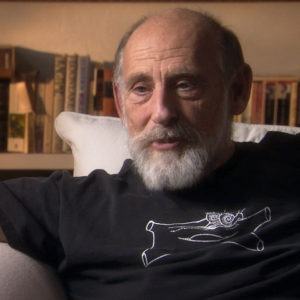 For decades now physicists have been struggling to reconcile two great ideas from a century ago: general relativity and quantum mechanics. We don’t yet know the final answer, but the journey has taken us to some amazing places. A leader in this quest has been Leonard Susskind, who has helped illuminate some of the most mind-blowing ideas in quantum gravity: the holographic principle, the string theory landscape, black-hole complementarity, and others. He has also become celebrated as a writer, speaker, and expositor of mind-blowing ideas. We talk about black holes, quantum mechanics, and the most exciting new directions in quantum gravity.
For decades now physicists have been struggling to reconcile two great ideas from a century ago: general relativity and quantum mechanics. We don’t yet know the final answer, but the journey has taken us to some amazing places. A leader in this quest has been Leonard Susskind, who has helped illuminate some of the most mind-blowing ideas in quantum gravity: the holographic principle, the string theory landscape, black-hole complementarity, and others. He has also become celebrated as a writer, speaker, and expositor of mind-blowing ideas. We talk about black holes, quantum mechanics, and the most exciting new directions in quantum gravity.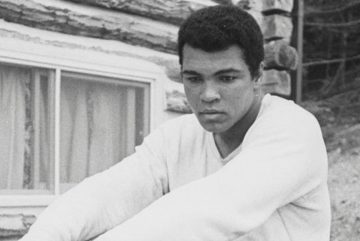 The opening frame of “What’s My Name” shows Ali explaining that should his story ever be told, he wants it done in full. So, there are no talking heads or narration, because who better to tell such a remarkable, revolutionary story than Muhammad Ali himself? His interviews and words guide us through his life, from early childhood until his final days, as he endures the bodily constraints of Parkinson’s disease. Ali’s famous, rhythmic one-liners, like “float like a butterfly, sting like a bee,” are accompanied by his critical analysis about race, white supremacy and his politics, which are global.
The opening frame of “What’s My Name” shows Ali explaining that should his story ever be told, he wants it done in full. So, there are no talking heads or narration, because who better to tell such a remarkable, revolutionary story than Muhammad Ali himself? His interviews and words guide us through his life, from early childhood until his final days, as he endures the bodily constraints of Parkinson’s disease. Ali’s famous, rhythmic one-liners, like “float like a butterfly, sting like a bee,” are accompanied by his critical analysis about race, white supremacy and his politics, which are global.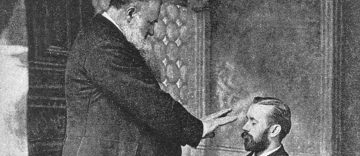
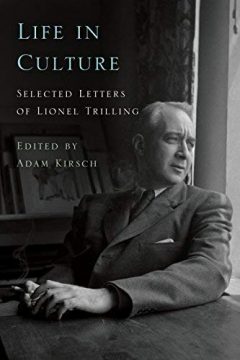 Trilling rather disliked the label “literary critic” and was pleased when Étienne Gilson suggested, in 1955, that he was not one. (Just what Gilson proposed him to be is not made clear.) All the same, twenty years after the Gilson exchange, Trilling would write to someone, who had sent him some offprints, to aver that he should “best refer to me as a critic of literature.” He did not much care for the New Criticism of Allen Tate, William Empson, and Cleanth Brooks, calling it snide and restrictive. Leon Edel, more a literary historian than a critic to be sure, he thought dull-witted (“a very stupid man”). One would not expect the life of a literary critic to be full of high adventure and derring-do, and the composite portrait of a critic’s life as painted in Trilling’s letters appears a largely unruffled if not a completely serene one. He married young and stay married to the same woman for his entire life. If there were any occasions of extramarital desire, much less action, they are not even intimated here. There is only a single rather explicit letter, to his wife, Diana, in which he talks about sex, and he never once swears and rarely uses slang. (When he writes in a letter to Norman Mailer that sex should be a subject for novelists for “ten, maybe twelve years; then everybody shut up,” it is a bit of a shock.)
Trilling rather disliked the label “literary critic” and was pleased when Étienne Gilson suggested, in 1955, that he was not one. (Just what Gilson proposed him to be is not made clear.) All the same, twenty years after the Gilson exchange, Trilling would write to someone, who had sent him some offprints, to aver that he should “best refer to me as a critic of literature.” He did not much care for the New Criticism of Allen Tate, William Empson, and Cleanth Brooks, calling it snide and restrictive. Leon Edel, more a literary historian than a critic to be sure, he thought dull-witted (“a very stupid man”). One would not expect the life of a literary critic to be full of high adventure and derring-do, and the composite portrait of a critic’s life as painted in Trilling’s letters appears a largely unruffled if not a completely serene one. He married young and stay married to the same woman for his entire life. If there were any occasions of extramarital desire, much less action, they are not even intimated here. There is only a single rather explicit letter, to his wife, Diana, in which he talks about sex, and he never once swears and rarely uses slang. (When he writes in a letter to Norman Mailer that sex should be a subject for novelists for “ten, maybe twelve years; then everybody shut up,” it is a bit of a shock.) There is a way in which all of Bette Howland’s characters seem like visitors from a parallel universe, where they are free rather than confined. This is the eponymous visitor in the opening story of this collection: “I was catching on at last. The bad roads, the crash, the minor injury. This petty bureaucrat. This place. Sir? I’m dead? Is that it? I’m dead? … That’s what they all want to know! he said. But that’s the whole show! I can’t give that away, can I?” An uncle’s young wife is “a big handsome Southern girl, rawboned, rock jawed, her pale head dropped over her knitting. Peculiarly pale; translucent, like rock candy, and almost as brittle.” It is as if they step into a room accompanied by their own lighting. “ ‘When are you going to get married?’ Uncle Rudy asked, towering over me.” Imagination is what she calls what she does with them, imaginative selection from the panoply of life. “He’s a scofflaw. He’ll go out of his way to park illegally. He’ll drive around the block looking for a No Parking sign or a nice little fire hydrant.” Reading the prose brings a Bette I’d forgotten—a glass of Scotch, how she threw back her head and uproariously laughed. Ah, yes; here’s the one with verve, the woman in the fedora photo.
There is a way in which all of Bette Howland’s characters seem like visitors from a parallel universe, where they are free rather than confined. This is the eponymous visitor in the opening story of this collection: “I was catching on at last. The bad roads, the crash, the minor injury. This petty bureaucrat. This place. Sir? I’m dead? Is that it? I’m dead? … That’s what they all want to know! he said. But that’s the whole show! I can’t give that away, can I?” An uncle’s young wife is “a big handsome Southern girl, rawboned, rock jawed, her pale head dropped over her knitting. Peculiarly pale; translucent, like rock candy, and almost as brittle.” It is as if they step into a room accompanied by their own lighting. “ ‘When are you going to get married?’ Uncle Rudy asked, towering over me.” Imagination is what she calls what she does with them, imaginative selection from the panoply of life. “He’s a scofflaw. He’ll go out of his way to park illegally. He’ll drive around the block looking for a No Parking sign or a nice little fire hydrant.” Reading the prose brings a Bette I’d forgotten—a glass of Scotch, how she threw back her head and uproariously laughed. Ah, yes; here’s the one with verve, the woman in the fedora photo. WASHINGTON — Humans are transforming Earth’s natural landscapes so dramatically that as many as one million plant and animal species are now at risk of extinction, posing a dire threat to ecosystems that people all over the world depend on for their survival, a sweeping new United Nations assessment has concluded. The 1,500-page report, compiled by hundreds of international experts and based on thousands of scientific studies, is the most exhaustive look yet at the decline in biodiversity across the globe and the dangers that creates for human civilization. A
WASHINGTON — Humans are transforming Earth’s natural landscapes so dramatically that as many as one million plant and animal species are now at risk of extinction, posing a dire threat to ecosystems that people all over the world depend on for their survival, a sweeping new United Nations assessment has concluded. The 1,500-page report, compiled by hundreds of international experts and based on thousands of scientific studies, is the most exhaustive look yet at the decline in biodiversity across the globe and the dangers that creates for human civilization. A  When I was laid off in 2015, I told people about it the way any good millennial would: By tweeting it. My hope was that someone on the fringes of my social sphere would point me to potential opportunities. To my surprise, the gambit worked. Shortly after my public plea for employment, a friend of a friend sent me a Facebook message alerting me to an opening in her department. Three rounds of interviews later, this acquaintance was my boss. (She’s now one of my closest friends).
When I was laid off in 2015, I told people about it the way any good millennial would: By tweeting it. My hope was that someone on the fringes of my social sphere would point me to potential opportunities. To my surprise, the gambit worked. Shortly after my public plea for employment, a friend of a friend sent me a Facebook message alerting me to an opening in her department. Three rounds of interviews later, this acquaintance was my boss. (She’s now one of my closest friends).